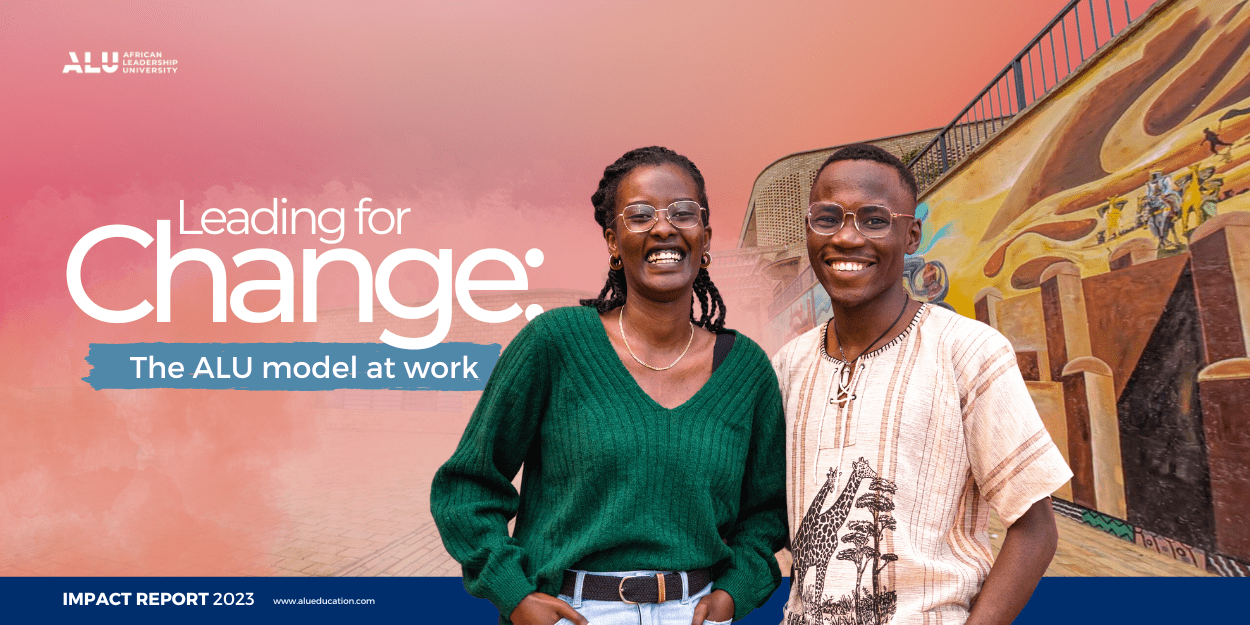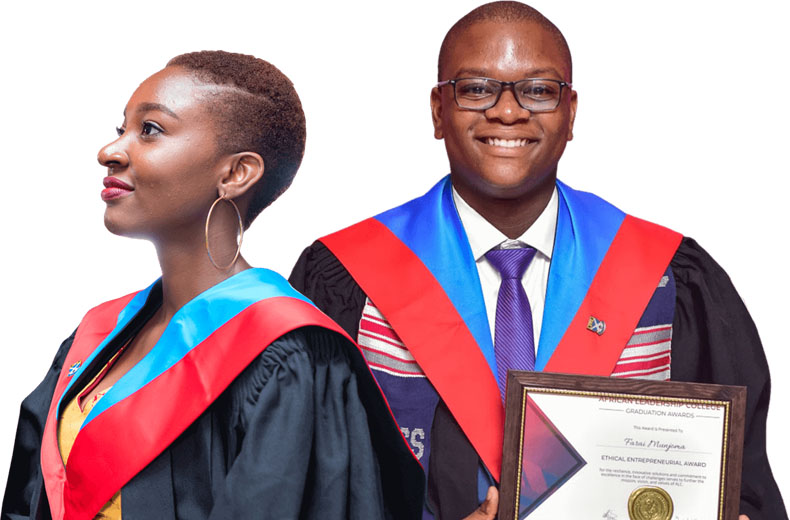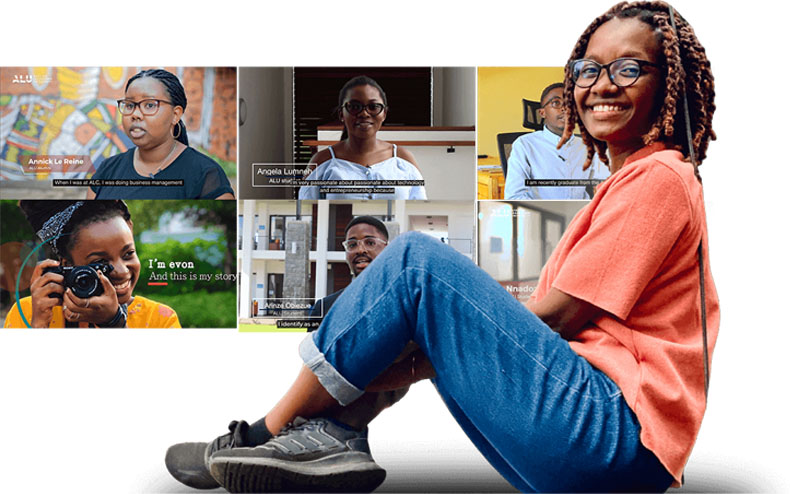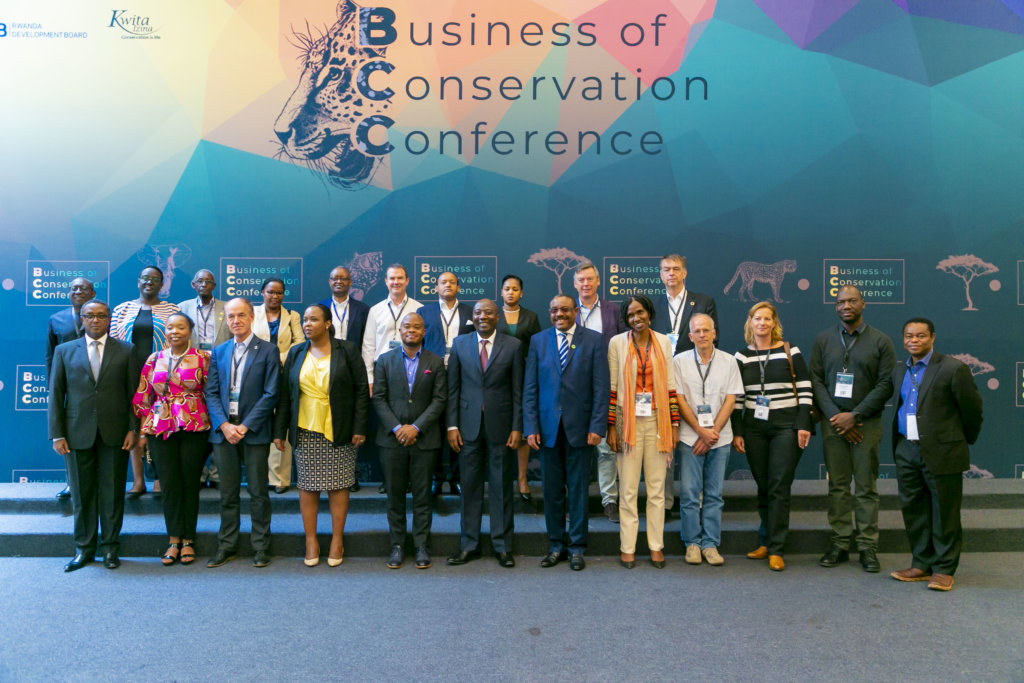It’s easy to call yourself a change agent, generating new ideas is exciting. The thing is, “being” or more appropriately embodying the qualities of a change agent is much harder; it requires new ideas aligned with consistent unwavering action.
In the field of conservation, new ideas could literally save the planet. At ALU’s School of Wildlife Conservation (SOWC), our goal is to find new ways to communicate the value of conservation not just for the continent but for the world.
In line with that thinking, SOWC hosted the second annual Business of Conservation Conference (BCC) in Kigali earlier in September. Everything from the location of the conference—the state of the art Kigali Convention Center—to a schedule packed with networking and pitch strategizing aligned to elevate the conversation of conservation away from a philanthropically-based model to one of revenue-based, goal-oriented growth.
With international media coverage from respected media outlets such as the Telegraph, CNBC Africa, and The East African to name a few, this year’s event, created a heightened anticipation. In addition, given this year’s conference theme, “Environmental Investing: From Scarcity to Abundance,” BCC 2019 cut right to the chase. This conference was about taking a well-known entity, conservation, and rebranding and repurposing it from charity to an investment commodity.
Over three days, ALU’s SOWC led over 300 CEOs, political leaders, technologists, investors, entrepreneurs, and innovative conservationists, from over 50 countries, through an exploration of how to transform conservation into an African growth industry.
With an official welcome from Fred Swaniker on Sunday, he summarized his blueprint—to shift conservation into a high-growth industry— by highlighting three necessary drivers to fuel this transformation:
- Build financially stable business models:
- Attract the continent’s top talent; and
- Establish an enabling political environment.
This laser focus allowed participants to see not only the intended goal but it also allowed them to begin the process of drilling down to create the foundational structures to support that goal.
Opportunities for formal and informal one-on-ones flourished and took on a life of their own. The many lunches, dinners, including the Sunday night gala presented numerous opportunities for participants to connect and collaborate.
The Leopard’s Cove helped several young African entrepreneurs take their best swing at pitching for seed money to build or scale their venture. Kevin Shema a second-year student of ALU Rwanda walked away from the cove with a soft commitment of $50,000 for his company Umuti which upcycles banana tree trunks into paper products. Another three participants received offers during and after the contest to continue discussions with investors after the conference.
In addition to the Leopard’s Cove, another 11 pre-selected participants had an opportunity to solicit meetings with potential investors in semi-structured Deal Rooms. Generally limited to large investment opportunities across the African conservation sector such as government concessions, tourism expansion projects and commodity development projects, six participants secured meetings to pitch to active investors, negotiate deals, and receive feedback from potential future investors and business partners.
Excited for our surprise guest, participants got to connect with global fashion superstar Naomi Campbell. During a special Q&A session, Naomi shared her passion for Africa and insights on the changes that need to happen for the continent to achieve its potential. She spoke passionately about the hypocrisy of companies for calling themselves “global” when they don’t have a single presence on the continent of Africa, saying:
“The word ‘global’ means they cover the world, and really when […] they miss an entire continent of 54 countries then they’re not global; they’re international. If they want to become global, they have to include Africa.” -Naomi Campbell.
In just three days, BCC helped shift perspectives on conservation. Just think what new partnerships could develop as more and more conservationists and investors continue to have these conservations. Sometimes, a new beginning only requires a short (just three days) suspension of the “normal” for people to see the benefits of change.










